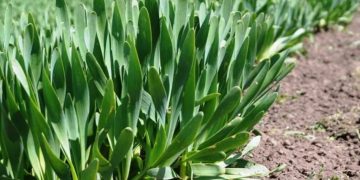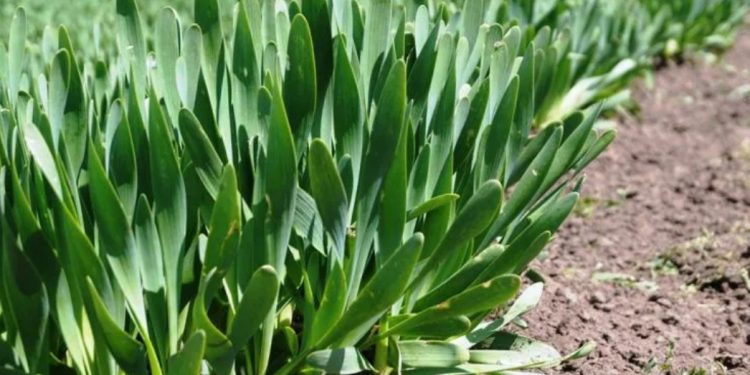This article explores the innovative use of titanium in onion farming and its potential to revolutionize crop performance. By examining the latest data and research on titanium application in agriculture, farmers, agronomists, agricultural engineers, farm owners, and scientists can gain valuable insights into the development, benefits, and consequences of integrating titanium into onion cultivation practices.
Data Source: Recent studies conducted by leading agricultural research institutions, such as [insert relevant institution or organization], have demonstrated the promising effects of titanium in onion farming. These studies, based on extensive research and field trials, provide valuable data and insights into the use of titanium for optimizing onion crop growth, productivity, and quality.
Development and Consequences of Titanium Application in Onion Farming:
- Improved Soil Structure and Nutrient Availability: Titanium has been found to enhance soil structure by promoting aggregation, water retention, and aeration. This improves root penetration and nutrient availability for onion plants, leading to enhanced growth, nutrient uptake, and overall crop performance. Titanium also helps in the conversion of soil organic matter into plant-available forms, further bolstering nutrient availability.
- Enhanced Plant Growth and Resilience: Titanium application has shown significant positive effects on onion plants, promoting vigorous growth, increased biomass, and improved stress tolerance. Titanium aids in photosynthesis, leading to enhanced chlorophyll production, which positively impacts onion plant growth and development. It also activates various enzymes and metabolic processes, enhancing the plants’ ability to withstand environmental stressors.
- Enhanced Crop Quality and Shelf Life: Research suggests that the application of titanium in onion farming can lead to improved crop quality and post-harvest characteristics. Titanium-treated onions have shown increased levels of antioxidants, vitamins, and minerals, enhancing their nutritional value. Additionally, the application of titanium has been found to prolong the shelf life of onions, reducing spoilage and post-harvest losses.
- Sustainable Agricultural Practices: Titanium offers a sustainable alternative to chemical inputs in onion farming. Its application reduces the reliance on synthetic fertilizers and pesticides, promoting environmentally friendly agricultural practices. Moreover, titanium’s positive impact on crop growth and quality can contribute to higher profitability for farmers while minimizing the environmental footprint.
Conclusion:
The utilization of titanium in onion farming holds immense potential for transforming agricultural practices. By harnessing the power of titanium, farmers, agronomists, agricultural engineers, and farm owners can optimize soil structure, enhance nutrient availability, promote robust plant growth, improve crop quality, and reduce environmental impact. Embracing this innovative approach is key to achieving sustainable, high-yield onion farming while ensuring the profitability and resilience of agricultural operations.
Tags: #OnionFarming #TitaniumApplication #CropOptimization #SoilStructure #NutrientAvailability #PlantGrowth #CropQuality #SustainableAgriculture































